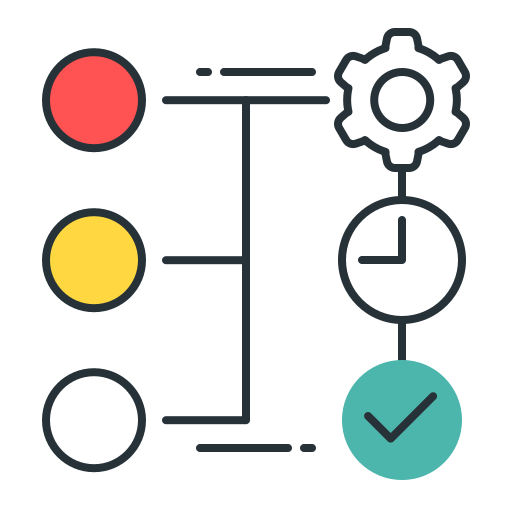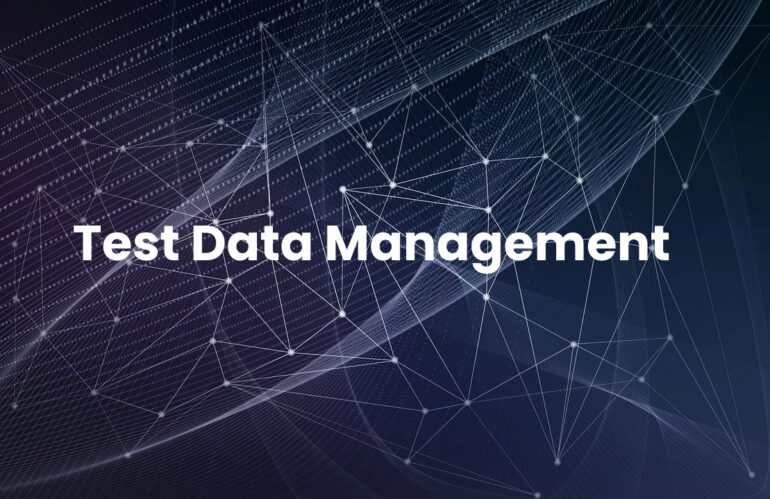What Is Test Data Management?
Developers use test data to validate and optimize application functionality, including common or critical user paths and corner cases. When they use realistic test data, it also helps to replicate error conditions and reproduce defects.
Application APIs must facilitate smooth electronic data exchange in real time while interacting with APIs from multiple vendors and partners. When performing integration and API testing, DevOps and QA teams often spend an inordinate amount of time waiting for test data from data sources. This causes delays that can impact the sprint or the entire software delivery.
To prevent your application testing from stalling and to maintain referential integrity, you need access to realistic test data on demand. Test data management (TDM) provides a way to create and manage safe and appropriate datasets that your company can use across multiple teams for validating an application’s functionality.
Virtual test data clears the path for DevOps teams to achieve continuous testing. Test data management monitors actual traffic and data patterns to generate data models from the interactions in your system and automatically infers information about the data warehouse to make it easier for non-technical users to get the test data they need.
By using synthetic data with your virtual services, you can test for a wide variety of conditions, both common and corner test cases.
If you have issues with making the right test data available for your QA teams to validate the application under test (AUT) effectively due to shared backend databases, you need test data management.
Types of Test Data Management

Production Data
This provides the most comprehensive test coverage and testers have a plethora of realistic data that came from their production system to work with. However, it comes with a price: loss of agility and high storage costs. In some applications, this method also risks revealing sensitive data.

Self-Service Data
This is data that you can access and use for testing as you need it, on demand. It allows you to easily reuse test data in your automated tests or virtual services, thus reducing the time you spend waiting for data refreshes from traditional test data management.

Masked Data
Using either subsets or full sets allows development teams to employ actual data without exposure to unsafe risks. Test data masking methods ensure that any sensitive data is protected.

Erroneous Data
This data contains errors to intentionally trip up your software to expose flaws. You need to ensure your application properly validates inputs and logs errors appropriately.

Synthetic (Virtual) Data
You don’t have to sacrifice data variability by choosing synthetically generated data over production data. Parasoft’s data modeling and data generation capabilities ensure you can expand a small data set to fulfill the variety you need to ensure thorough test coverage. It’s more efficient to use a tool to automatically generate virtual test data that aligns with a model of the actual data. Then the data is easier to mask, modify, and manipulate for various testing needs. Separate teams can leverage multiple copies without overwriting the master dataset.

Data Subsets
Synthetic data generation is great but generating sufficiently diverse data means you have to manage a lot of data. Certain use cases will require specific subsets of data tailored to each need. Parasoft’s test data solution lets you add constraints to the test data you need subsetted, making it easy to deliver exactly the data for specific testing needs.

Shaping Data
Systems can behave very differently depending on the shape of test data that are used. Only using small payloads can risk missing serious issues that come up when systems are subjected to data in a variety of shapes and sizes. Parasoft’s test data solution lets you modulate the shape of generated data to ensure your tests are covering scenarios where your application must contend with large payloads.

Positive Path Data
This features no error or exceptional conditions. This data allows tests to follow a typical user path that is expected to execute without exception and yield a predictable output. If this “happy path” doesn’t work correctly, the software doesn’t meet the requirements.

Data Integration
Collect and manage the data from disparate data sources, run them through the cleansing and profiling process before the data is transformed and moved based on business logic. We take care of End-to-End data Management services from Collecting, transforming and storing the data in data lakes, data warehouse be it in on-prem or in cloud.

Business Intelligence
Raw data stored in a data lake/warehouse doesn’t provide much value unless it’s visualized in a meaningful way for the Business to understand and take decisions. The C’ level top management in any company would like to get the business insights from the data collected to come out with more effective business strategies and take accurate tactical decision. We in TechKovan, support customers to have their dashboards and reports built based on the data collected.

Testing Services
Testing is the most critical part of the Software development process as no customer will accept a product/service that does not satisfy their business requirements. We at TechKovan, provide end to end Testing services for customers. Right from designing the Functional specifications, Test Cases, Automated test suites and providing Test Metrics, we are the best in the industry with professionals at different levels having vast experience in each of these areas.

